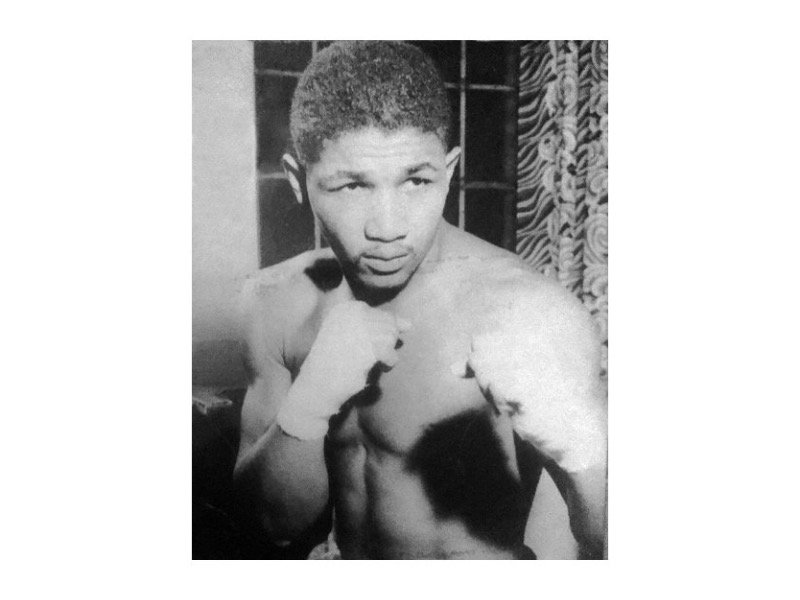Did Ad Wolgast take it in the shorts at the Milwaukee Auditorium 100 years ago this month?
That’s the question – literally and figuratively – that still hangs over one of the most famous events in local sports history.
The Auditorium was packed with almost 8,000 fans for the world lightweight championship fight between Wolgast and Willie Ritchie on March 12, 1914. Hours before they entered the ring, a police cordon around what’s now the Milwaukee Theatre, 500 W. Kilbourn Ave., turned back hundreds of people without tickets.
Special trains delivered fight fans here from all over the country for the wildly anticipated rematch between the two boxers. Their hatred for one another had been white-hot since Ritchie won the lightweight championship from Wolgast when the latter was disqualified for a low punch in the 16th round of their bout in San Francisco – Ritchie’s hometown – in 1912.
To Wolgast, Ritchie was an "accidental champion" and even a "female impersonator."
Born in Cadillac, Mich., Wolgast moved here in 1907 to kick his boxing career into high gear. Though he left for California a year later, he was introduced as "the Flying Dutchman from Milwaukee" before the historic 40-round brawl in which he won the championship by technical KO over Battling Nelson in Port Richmond, Calif., in 1910. A week later, when 1,000 local fans greeted him at Union Station, he proclaimed himself "still the Milwaukee boy."
In 1914, fights in Wisconsin were limited to 10 rounds, and no official decisions were allowed. So Ritchie could only lose his title if he failed to go the distance or if he was disqualified.
For six rounds, the fight was close between the slick boxing champion and his crouching opponent, who winged heavy punches when he bulled Ritchie against the ropes.
In the seventh, as the fighters came out of a clinch, Wolgast suddenly fell to the canvas. One of his cornermen ran around the ring screaming at referee Harry Stout that Ritchie had hit below the belt, but Stout shook his head and started to count.
Wolgast got up at six and lasted out the round. Ritchie outboxed him in the eighth and ninth, but Wolgast stormed back to win the final round. Most of the sportswriters at ringside called the exciting bout a draw or gave it to Ritchie by a shade on the strength of the knockdown.
In his dressing room, Wolgast howled that a low punch had put him down, and three physicians who examined his purpled groin confirmed it. "It is a marvel to know he was able to continue under the circumstances," said Dr. C.W. Morter.
Ritchie called Wolgast’s claim of a foul "a joke" and said it was a legal punch to the pit of the stomach. Referee Stout initially said he didn’t see it because "I was back of Ritchie at the time," but later declared he had been in "a perfect position" after all and the punch was "clean as a whistle."
Newspaper stories said that had Wolgast let Stout count him out, the medical confirmation that he’d been hit low would’ve compelled the state boxing commission to disqualify Ritchie and give Wolgast back the championship belt.
But because Wolgast had gotten up and finished the fight, that didn’t happen.
A whole decade passed before Manning Vaughan – then sports editor of The Milwaukee Journal and, at the time of the Wolgast-Ritchie fight, also secretary of the boxing commission – divulged that several days before the bout, the commission got wind "that Harry Stout, the referee, had been fixed and that it was in the cards for Wolgast to regain the title by claiming a foul. It was said that Stout would disqualify Ritchie the first time he struck low."
The commission ordered Stout "not to stop the bout because of a foul unless he was absolutely certain that a foul had been committed," wrote Vaughan.
Vaughan recalled that immediately after the fight, Stout told him, "I know Wolgast was hit low, but I did not think the blow hurt him enough to warrant stopping the bout. Besides, there were so many stories in the air that I did not intend to get myself in a trap by a bit of snap judgment."
In 1926, the mystery deepened when Sentinel sports editor A.J. Schinner wrote, "The full tale of that battle has never been told and probably never will be told." Schinner recalled seeing a "red daub on (Wolgast’s) groin and a bent cup," but said, "whether the cup was bent before or after we can’t say – nor will anybody else."
If nothing else, credit Wolgast with the last low blow during a 1918 visit to the Journal sports department. Seeing a photo of Ritchie on the wall, he exploded.
"No guy with the handle ‘Willie’ should be a world champion fighter! If he would call himself ‘Bill’ or ‘Billy,’ I wouldn’t hate him so much. Willie! What a name for a he-man fighter!"







